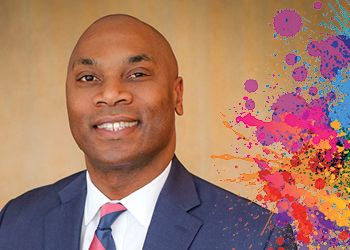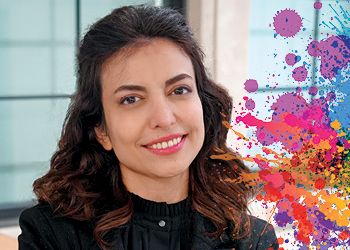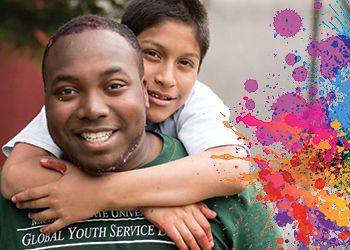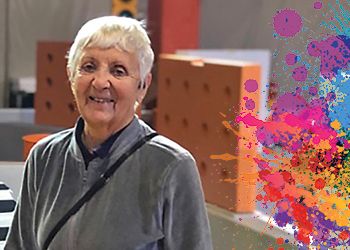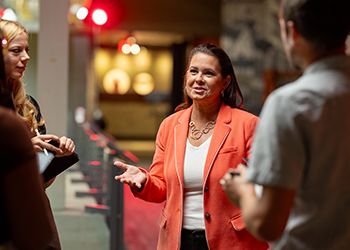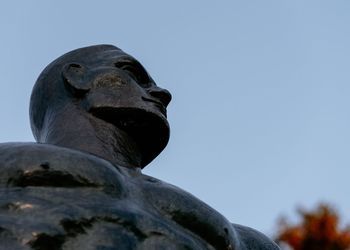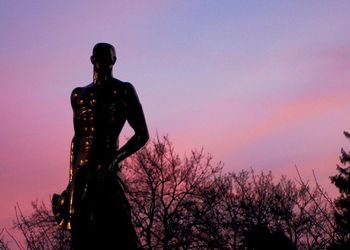All In: Build Up
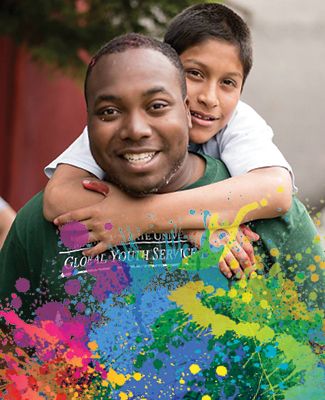
All In: Build Up
These Spartans are using their voices, platforms and experiences to help transform the lives and livelihoods of underrepresented people.
February 1, 2023TERENCE GIPSON – PUBLIC HEALTH ADVOCATE
Terence Gipson, ’15, MPH ’17, is an assistant professor of public health at St. John Fisher University in Pittsford, New York.
Everything changed when I met Victor.
Over spring break of my sophomore year at MSU, I went on a service trip to an all-boys orphanage in Puebla, Mexico. On day one, I noticed a boy isolated from others.
“Victor’s new here,” a staff member informed me. “Do you want to take him to his therapy appointment after school?”
I obliged and I asked Victor about his session during our trip back to the orphanage. Expecting a terse reply, I instead received a thorough, thoughtful response from a self-aware 10-year-old. Abandoned by his parents, uncertainty led Victor to the orphanage. Strangely, uncertainty led me there as well.
I entered MSU as a theatre major and debated switches to at least three other majors as your stereotypical wandering first-year student. I settled into MSU’s new Global Studies in the Arts & Humanities degree program early in my sophomore year, intrigued by study abroad opportunities and considering a service-oriented career.
My time with Victor confirmed I wanted to be in communities addressing social needs. Through later service trips to Costa Rica, Belize and Peru, I witnessed how physical and social environments impacted quality of life and was drawn to public health, a field I knew nothing about just a few years prior. Today, public health serves the ideal profession for me to blend my creativity and humanities-based education with outcomes-minded programming in developmental and behavioral pediatrics.
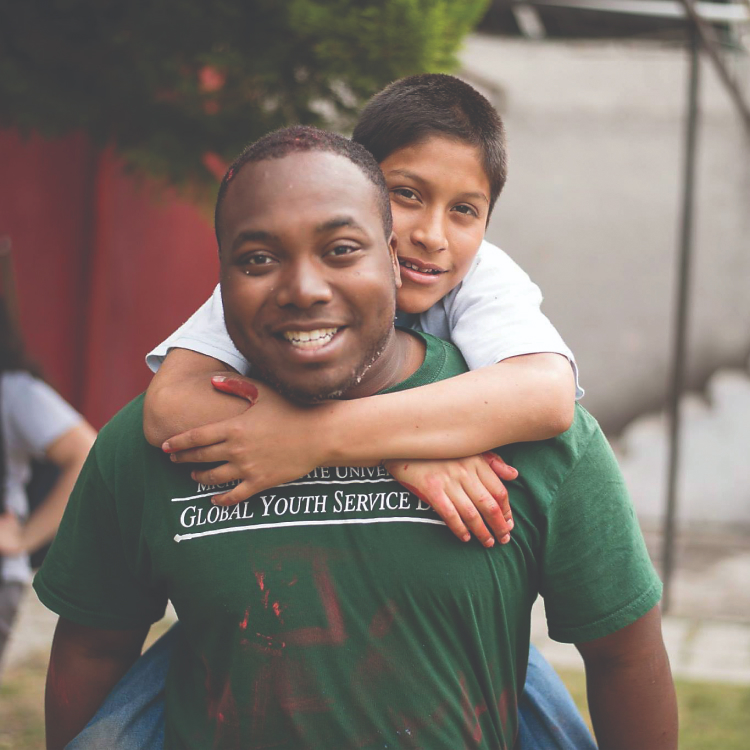
A few years ago, I became involved with The Advancement Corporation (TAC) in Lansing, a grassroots organization that addresses poverty and injustice. In 2020, I stood before the Lansing Board of Education and presented a TAC proposal to convert the vacant Otto Middle School on Lansing’s north side into a facility providing comprehensive health and social services ranging from dentistry and nutrition to legal support. Today, the development of the Advancement Corporation Community Center, or AC3, is in full swing.
The AC3 represents the beacon of everything I’ve been building toward. It’s why I went to Michigan State and challenged myself to reflect on tough questions. It’s why I remain committed to driving Lansing’s resilience and invest myself in solutions rather than simply identifying problems.
It’s also why Victor remains with me these many years later. Meeting Victor, the uncertainty once hovering over my start at MSU melted into self-reflection, conscious action and a push to realize potential, both for myself and others.
And as a result, I couldn’t be more certain of where I belong.
DOUG ROGINSON, ’01, ELI BROAD COLLEGE OF BUSINESS
Executive Director – Relationship Management, JPMorgan Chase & Co. Architect and director of the Diverse Supplier Grant Initiative, sponsored by JPMorgan Chase.
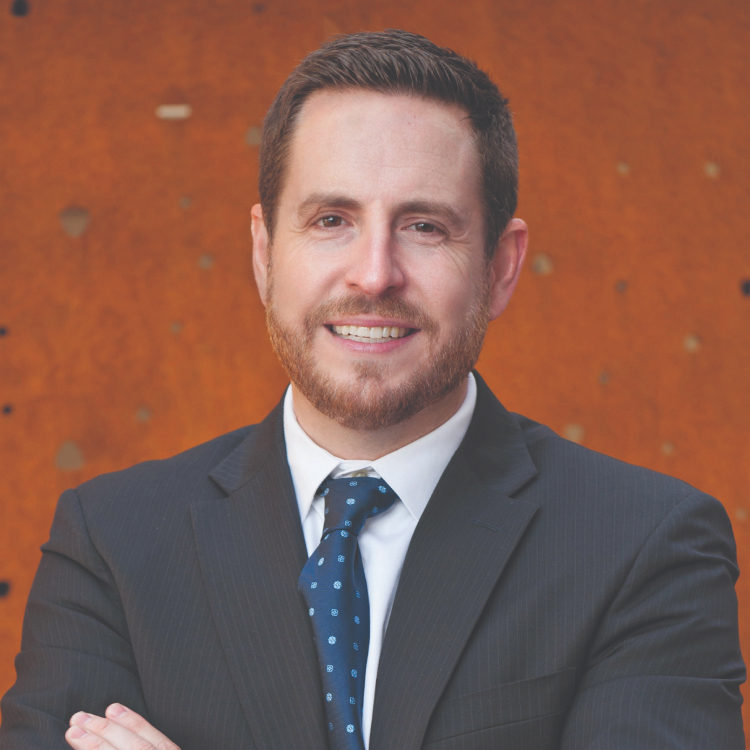
“As a supply chain major, and in my early career at Ford Motor Company, I was first introduced to supplier diversity and how purposeful inclusion of diverse groups can help foster opportunities for all communities. It’s been a core tenet of my business mindset ever since. And it was a catalyst for me to build and launch the Diverse Supplier Grant Initiative.”
Through this initiative, Roginson is helping lower financial barriers for diverse-owned businesses that are vying for corporate contracts from Fortune 500 companies.
“Meeting a corporation’s compliance requirements can cost several hundred thousand dollars, and access to capital is a primary barrier for diverse small businesses.” Roginson believes in the power of inclusion to advance ideas and spark innovative thinking. “Inherent obstacles will always be present if we don’t offer thoughtful solutions or advocate for others. The saying ‘walk a mile in someone’s shoes’ resonates more than ever for me.”
STEPHANIE DIVIRGIL, ’04, ELI BROAD COLLEGE OF BUSINESS
Program/Operations Coordinator at Full Circle Foundation. Helping young adults with developmental disabilities transition from school to independent living.
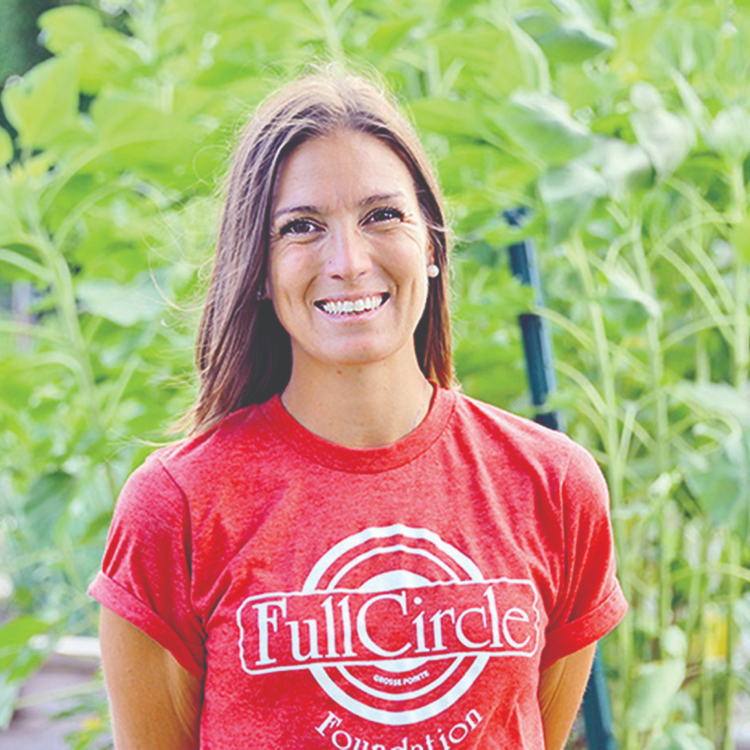
“Adults with disabilities such as cognitive impairment, autism spectrum disorder and learning disabilities can often feel misunderstood. Full Circle Foundation strives to provide a safe space for them to be who they are.”
The nonprofit also offers opportunities to integrate participants into the local community.
“Through our microenterprises, like our Upscale Resale Shop, they work with our volunteers and customers, and really get a sense of accomplishment and self-worth. One-on-one interactions with the public help create a feeling of acceptance.”
It’s a way to gain both real-world working experience as well as exposure to the community.
“We understand how crucial it is for adults with developmental disabilities to have a place to go once schooling is over. Full Circle provides a seamless transition to independent living. Beyond being incredibly fulfilling, this work is proof that when we come together, we can create opportunities that suit each and everyone.”
AARON MOFFETT, PH.D. ’05, COLLEGE OF EDUCATION
Sport Psychology Consultant for the Wounded Warrior Program and the United States Air Force. Team USA Head Coach at the 2017 Invictus Games and vice president of the San Antonio Spartans Board.
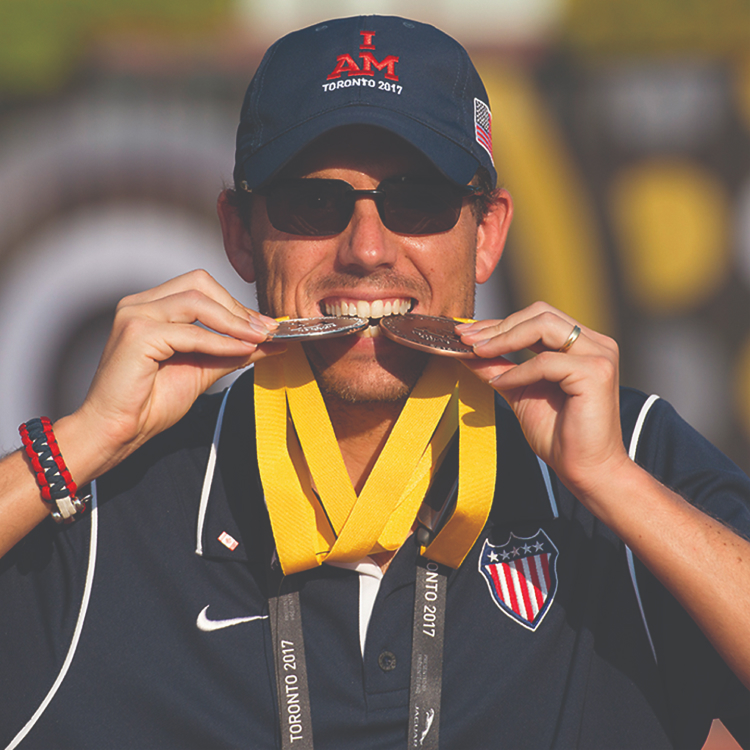
“Many of the wounded warriors that I coach feel they are being kicked out of the military by their brothers and sisters in arms because of their injury, illness or wound. They have suffered not only from physical disabilities but also the invisible wounds of combat and illness. It’s always my goal to help these warriors by re-instilling confidence and, through sports, gaining a renewed purpose.”
Addressing the psyche is central to Moffett’s work. “Being able to combine my psychology training and sports passion has allowed me to help our military community overcome physical and emotional wounds. When you belong to a team or military family that lives and breathes one mission, you know you are unstoppable. You know that you will reach your greatest potential.”
From 2016 to 2018, Moffett coached Team USA at the Invictus Games, an international multisport event for wounded, injured and sick veterans and active duty servicemembers.
“I was asked to lead a group of more than 100 heroes into competition to represent our great country. Serving as the head coach for Team USA was an incredible honor.”
MUDITA JAGOTA, MASTER’S STUDENT
Faridabad, Haryana, India native Mudita Jagota is a second-year master’s student pursuing a degree in rehabilitation counseling. Her passion lies in spreading understanding, hope and acceptance for people with disabilities.
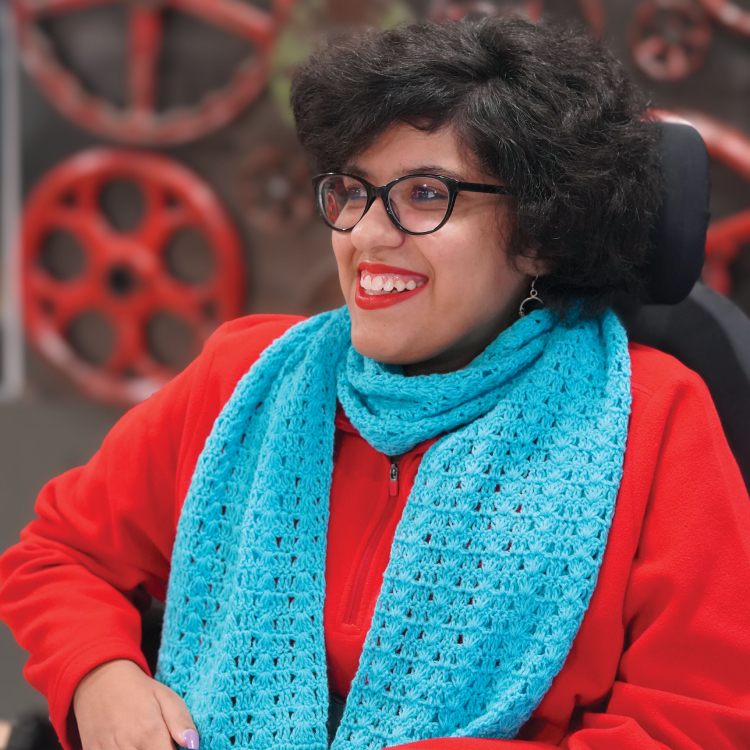
I like the word “and.” It connects phrases and brings ideas together while also signifying there is more to the story.
I have a genetic disorder called spinal muscular atrophy because of which I have never walked and am a wheelchair user. When I speak about my disability, “and” is the word I go to most often: Disabled and happy. Disabled and proud. Disabled and unapologetic about it. This is who I am.
It is what has driven my deep interest in working toward the welfare of others like me. A few years ago, I started using social media to amplify my voice as an advocate for the rights of people with disabilities. I have since grown a great deal, both in terms of followers as well as within myself.
Growing up in India, I did not know anyone else in a wheelchair. In that culture, people are often afraid of disabilities. That is starting to change as they become more accepted by others, but when I was young, I had a hard time accepting my own disability.
But then I started doing this work, and because of my social media advocacy, I met disabled people from different parts of the world. We bonded as a community and we continue to fight for our rights and spread education, equity and understanding.
Seeing my work being appreciated by others helped me accept myself. People tell me things like, “because of you, we learned things about disability that we never knew.” When these people are so supportive of me, why shouldn’t I be my true self and accept who I am?
A major part of acceptance of self has to do with the people that accept you. I’ve found a great community of fellow international students during my time at MSU. My friends from Australia, Libya, Iraq, Iran, Pakistan and Bangladesh—we may come from all over the world, but we share a common perspective as we adapt to life in a new society. We help each other, we share about our cultures and bicker about whose cricket team reigns supreme.
Belonging and inclusion take many shapes. It’s allowing people from other cultures to take time off on holidays and celebrations of heritage. It’s creating accessible buildings and communities. It’s shedding our own biases and assumptions about the abilities, struggles, intentions and intelligence of others. In the end, it’s about making sure that people’s well-being is a priority. And I think that’s worth fighting for—for all of humankind.
Contributing Writer(s): Terrence Gipson, Doug Roginson, Stephanie DiVirgil, Aaron Moffett, Mudita Jagota


